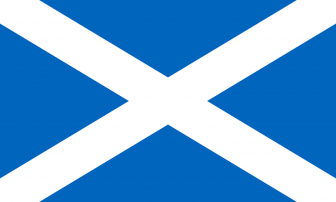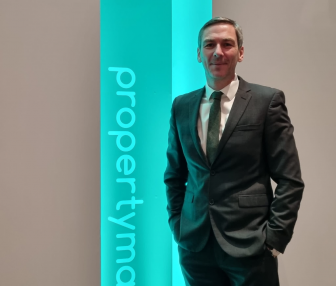 Residential property prices across Scotland in November increased by 11.4% on average compared with November 2020, according to the latest data from the UK House Price Index released by Registers of Scotland.
Residential property prices across Scotland in November increased by 11.4% on average compared with November 2020, according to the latest data from the UK House Price Index released by Registers of Scotland.
The average price of £182,755 was also up by 1% on the October figure.
The UK average house price of £270,708 was up by 10.1% on November 2020 and 1.2% on October 2021.
Average year-on-year price increases were recorded in all 32 local authority areas.
The largest rise was in Argyll & Bute (18.6%), followed by Clackmannanshire (16.6%) and West Lothian (15.7%).
The smallest increase was recorded in Angus (6.4%), followed by City of Aberdeen and North Ayrshire (both 7.7%) and East Ayrshire (7.9%).
Detached properties continued to show the biggest increase, at 15.7% compared to 7.7% for flats.

Daryl McIntosh, policy manager at Propertymark, commented: “The latest UK House Price Index shows that the average price of a property in Scotland stood at £182,755 in November 2021, representing annual house price inflation of 11.4%.
“Strong demand coupled with a shortage of property coming onto the market has continued to fuel annual price increases across all local authority areas in Scotland.”
The volume of residential property transactions in Scotland in September 2021 was 9,250, a drop of 9% on the original provisional estimate for September 2020. This compares with decreases of 23.4% in England and 36.9% in Wales to September 2021.
Registers of Scotland business development director Kenny Crawford said: “Over the year as a whole from October 2020 to the end of September 2021, the number of transactions has picked up following the reductions caused by Covid-19 measures and cumulatively is now 51% higher than the previous year.
“Figures in the current year to date are also 18% higher than pre-Covid figures from September 2018 to September 2019”
Related news
Separate data from DJ Alexander Ltd, part of the Lomond Group, shows that Scottish average property prices have increased by over 20% since start of pandemic in March 2020.
The estate agency reports that between March 2020 and November 2021 – the latest month for which there is data – average property prices in Scotland rose by 21.3%. This compares with an average price increase in Wales of 19.6%; in the UK by 16.3%; and in England 15.6% over the same period.
The greatest increase in Scotland occurred in Inverclyde which saw average prices increase by 29.7% followed by Argyll at 28.7%; South Ayrshire at 25.5%; East Ayrshire 25.3%; and South Lanarkshire 24.8%.
The lowest increases were in Aberdeen which rose by 5.8%; Aberdeenshire at 7.9%; Edinburgh at 15.4%; East Renfrewshire 15.6%: while Angus increased by 16.0%.
David Alexander, the chief executive officer of DJ Alexander Scotland, commented: “These figures reveal just how lively the Scottish housing market has been during the pandemic. The assumption at the start of the pandemic was that property prices would probably be flat or only rising slightly but they have been, and continue to be, the surprise story of the last 21 months.”
“The increases across the country reveal that this has been a Scotland-wide phenomenon with some areas really taking off due to a mixture of shifting buying patterns, high demand, and low stock levels. You could easily argue that the large price increases in Inverclyde, Argyll and Bute, South Ayrshire and others adjacent areas indicates a shift of people moving to larger properties just outside Glasgow as a result of the pandemics’ working from home policy. Whether this pattern holds when people start to return to the workplace (as indicated by the First Minister this week) will become apparent in the coming months.”
He continued: “But it is clear that the figures reveal quite disparate market performance across different parts of the country. Glasgow’s property market, and the surrounding areas, has been booming during the pandemic with a quite extraordinary average price increase of 23.3%. However, Aberdeen and Aberdeenshire show the lowest rises, and this reflects the continued uncertainty, unrelated to Covid, over the future of the oil and gas sector and until this situation is clarified then house prices are likely to remain flat or with limited growth.”
“While Edinburgh’s growth may seem modest since it is near the bottom of the table in percentage terms this is because it started from a remarkably high base and the gap between the Scottish capital and the rest of the country remains substantial. The average property price in Edinburgh is now 73.4% higher than the average for Scotland as a whole. This price difference may also be the reason why East Lothian, Fife, and Midlothian have all experienced substantial average price rises.”
Average price of all property types in UK countries
Location Difference November 2021 March 202
Scotland 21.3% £182,755 £150,625
Wales 19.6% £199,877 £167,040
UK 16.3% £270,708 £232,684
England 15.6% £288,130 £249,121
Average price of all property types in Scottish cities and areas
Location Difference November 2021 March 2020
Inverclyde 29.7% £123,587 £95,271
Argyll and Bute 28.7% £181,701 £141,219
South Ayrshire 25.5% £165,369 £131,762
East Ayrshire 25.3% £118,556 £94,618
South Lanarkshire 24.8% £159,380 £127,744
East Lothian 24.6% £280,630 £225,177
Fife 24.3% £166,333 £133,759
Clackmannanshire 23.8% £160,730 £129,789
Glasgow 23.3% £164,382 £133,366
Stirling 21.7% £240,136 £197,322
Perth and Kinross 21.0% £230,370 £190,332
West Dunbartonshire 20.9% £131,915 £109,087
Moray 20.7% £175,955 £145,786
West Lothian 20.5% £196,303 £162,878
Renfrewshire 20.1% £148,492 £123,648
Falkirk 19.9% £154,156 £128,568
North Lanarkshire 19.4% £128,856 £107,911
Scottish Borders 19.3% £189,995 £159,221
Highland 18.9% £196,619 £165,328
North Ayrshire 18.9% £122,741 £103,181
Dumfries & Galloway 18.5% £153,624 £129,614
East Dunbartonshire 17.7% £252,882 £214,909
Midlothian 17.5% £225,070 £191,610
Dundee 17.1% £145,174 £123,029
Angus 16.0% £163,778 £141,143
East Renfrewshire 15.6% £266,469 £230,496
Edinburgh 15.4% £316,864 £274,512
Aberdeenshire 7.9% £198,400 £174,350
Aberdeen 5.8% £149,464 £141,192


Comments are closed.